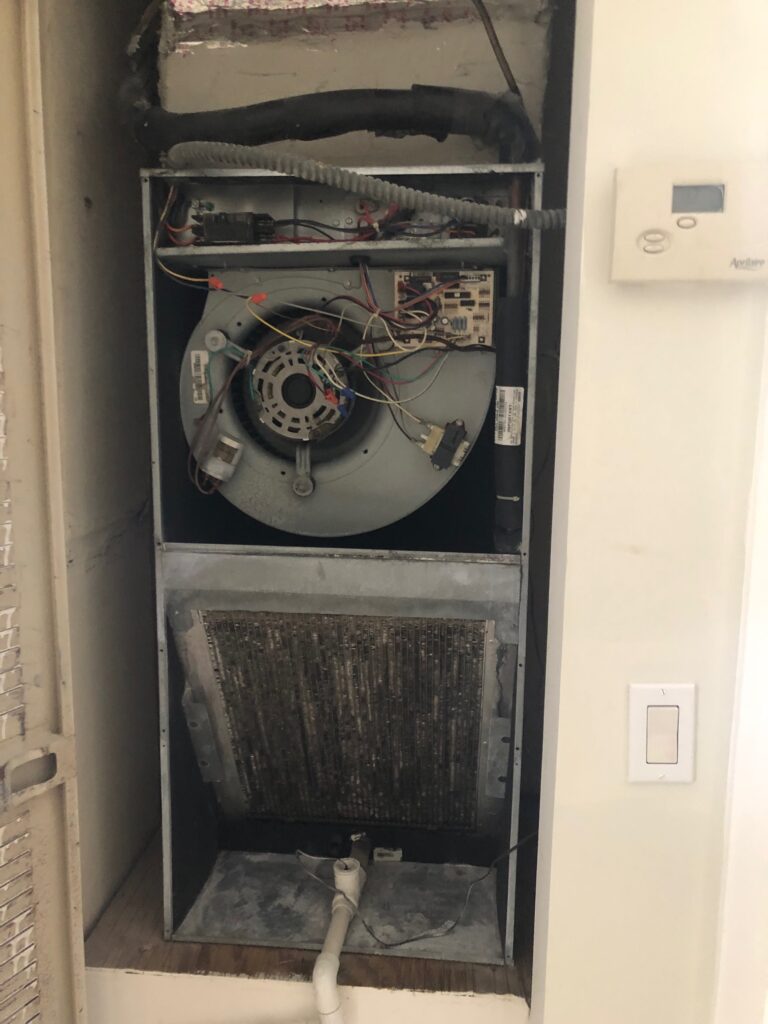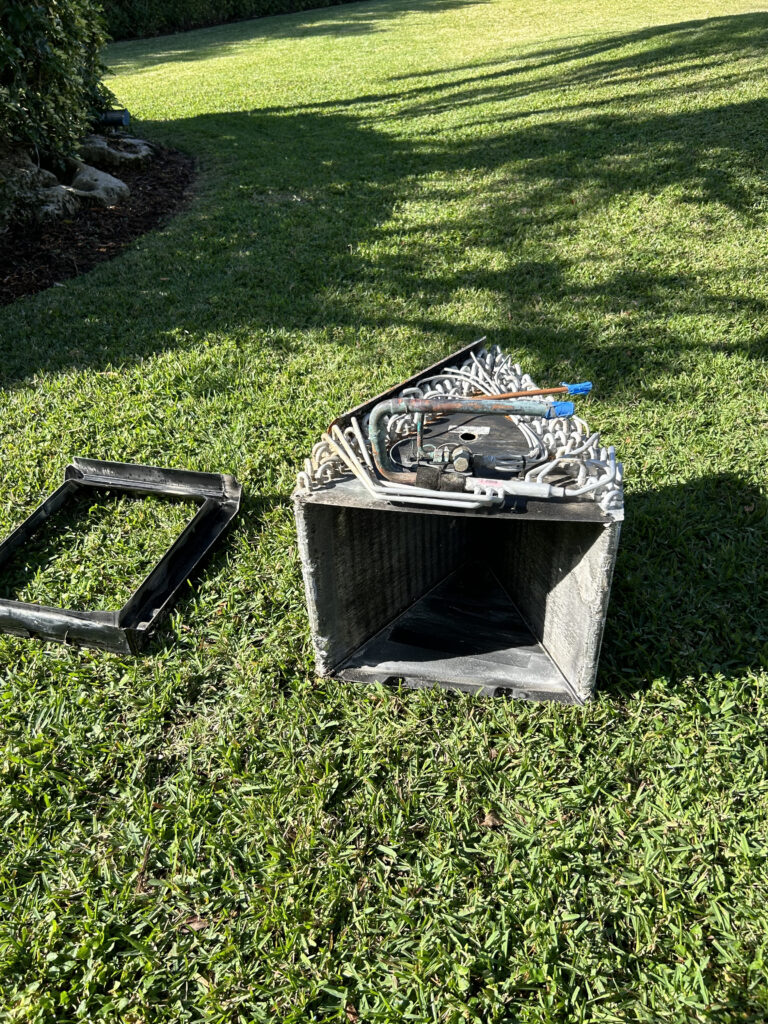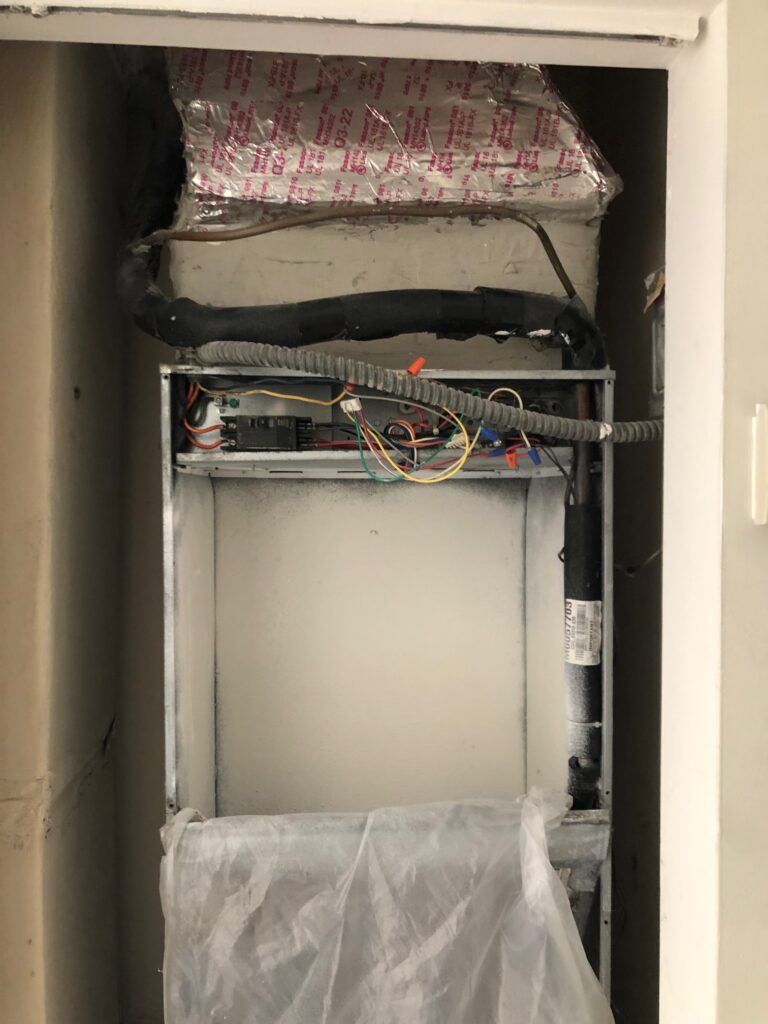Yacht HVAC Coil & Blower Wheel Sanitization
Protect Your Vessel’s Comfort and Air System Performance
Routine sanitization of your yacht’s HVAC coils and blower wheels is essential for maintaining clean, breathable air and extending the lifespan of your onboard mechanical systems.
In the marine environment, where salt, moisture, and organic buildup are constant challenges, these components can become contaminated quickly—leading to musty odors and microbial growth.
Our Process
Step 1

Inspection
We start by inspecting the HVAC unit to determine if the coil and blower wheel can be safely removed. In some cases, older units may require in-place cleaning.

Removal
We safely pump down the HVAC system to isolate refrigerant and protect the components. We then carefully disconnect and remove the coil and blower wheel for thorough cleaning.

Sanitizaiton
We use professional grade cleaning tools and cleaning agents to gently hand-clean the component without causing damage.

Reinstallation
After cleaning, we carefully reinstall the coil and blower wheel. We then power up the system to ensure it is operating properly.
Why Choose GreenFox for Your Yacht’s HVAC Service?
We don’t just work on land-based systems—GreenFox has marine HVAC experience and understands the tight spaces, unique duct configurations, and corrosion-prone environments onboard vessels. Our technicians take extreme care during every project and are trained to work around luxury finishes, sensitive electronics, and limited-access mechanical rooms.
Trusted by yacht owners, captains, and fleet managers across Palm Beach County, Ft. Lauderdale, Miami, and beyond.
Benefits of Yacht Coil & Blower Wheel Sanitization
- Restores System Efficiency by improving heat transfer and airflow
- Reduces Odors caused by organic buildup, mildew, and moisture
- Prevents Corrosion and Wear on fan motors and metal parts
- Minimizes Allergens and Particulates circulating onboard
- Extends Lifespan of sensitive HVAC equipment in marine environments
FAQ
How often should I have the coil and blower wheel cleaned on my yacht?
We recommend sanitization at least once per year, or every 6 months if the vessel is chartered frequently or exposed to high humidity and salt spray.
Do you need to remove the coil to clean it?
Not always. If access allows, we may remove the coil for deep cleaning. In situations with limited access, we use in-place methods that are equally effective when performed by a trained technician.
Is this service safe for high-end HVAC systems?
Yes. We use only coil-safe tools, non-corrosive agents, and techniques approved for delicate marine HVAC components.
Can this help reduce odors on board?
Yes. Blower wheels and coils are often the source of mildew-like smells, especially in humid marine conditions. Treating them helps reduce odor at the source.
